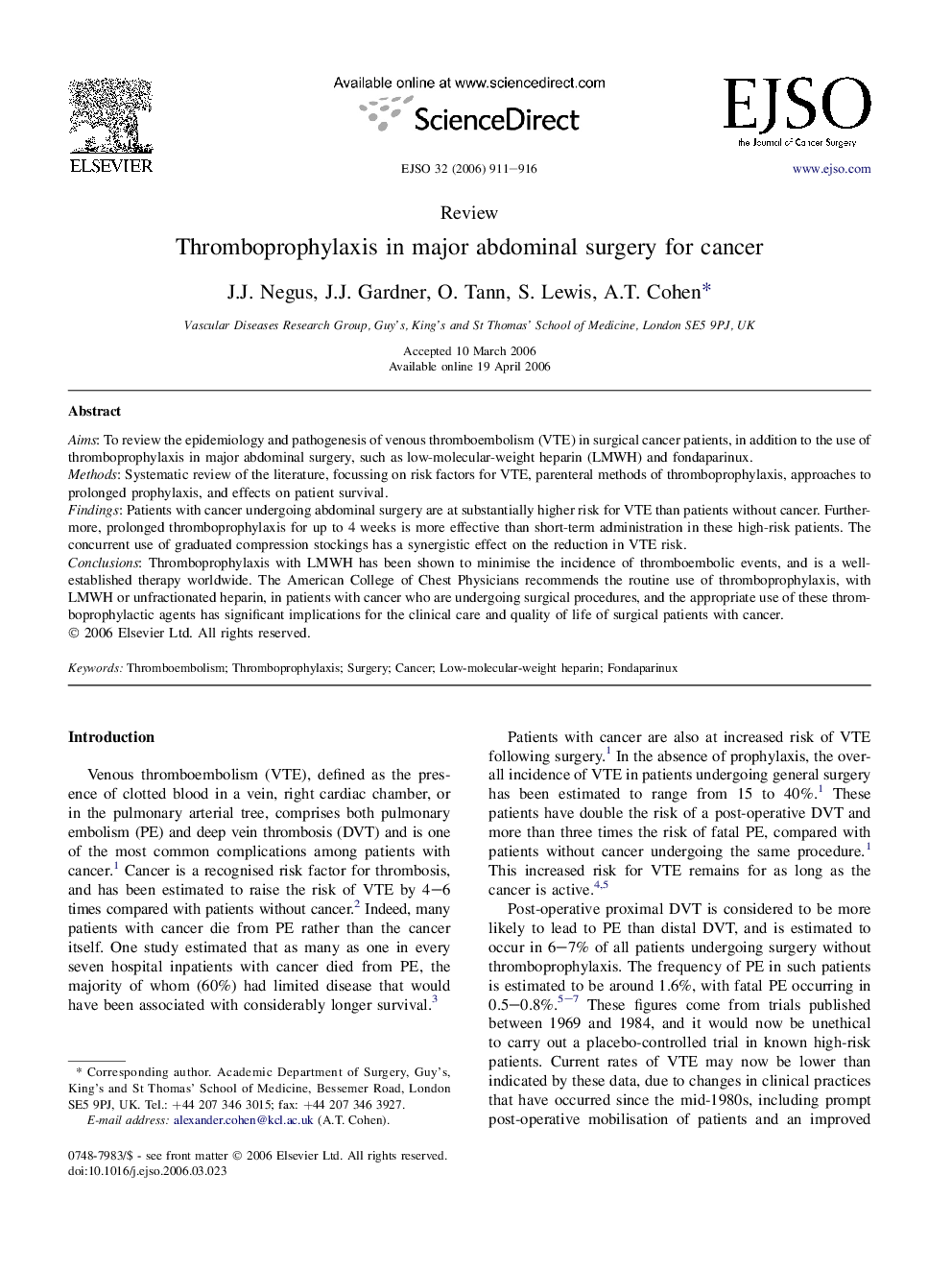| Article ID | Journal | Published Year | Pages | File Type |
|---|---|---|---|---|
| 3988131 | European Journal of Surgical Oncology (EJSO) | 2006 | 6 Pages |
AimsTo review the epidemiology and pathogenesis of venous thromboembolism (VTE) in surgical cancer patients, in addition to the use of thromboprophylaxis in major abdominal surgery, such as low-molecular-weight heparin (LMWH) and fondaparinux.MethodsSystematic review of the literature, focussing on risk factors for VTE, parenteral methods of thromboprophylaxis, approaches to prolonged prophylaxis, and effects on patient survival.FindingsPatients with cancer undergoing abdominal surgery are at substantially higher risk for VTE than patients without cancer. Furthermore, prolonged thromboprophylaxis for up to 4 weeks is more effective than short-term administration in these high-risk patients. The concurrent use of graduated compression stockings has a synergistic effect on the reduction in VTE risk.ConclusionsThromboprophylaxis with LMWH has been shown to minimise the incidence of thromboembolic events, and is a well-established therapy worldwide. The American College of Chest Physicians recommends the routine use of thromboprophylaxis, with LMWH or unfractionated heparin, in patients with cancer who are undergoing surgical procedures, and the appropriate use of these thromboprophylactic agents has significant implications for the clinical care and quality of life of surgical patients with cancer.
